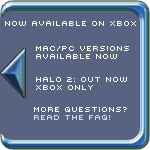



Posts on Current Forum | Archived Posts
 |
 |
|||
 |
||||
 |
||||
| Frequently Asked Forum Questions | ||||
| Search Older Posts on This Forum: Posts on Current Forum | Archived Posts | ||||
| Fair Use: Your fanfic is not illegal (law stuff) | |
| Posted By: mr_mcmurder <bpme05@mizzou.edu> | Date: 5/16/05 3:30 p.m. |
In Response To: The moral dilemmas of a fanfic author (Jillybean) Section 107 The Copyright Act of 1976 (you can look it up for yourself on the internet) states that a finding of copyright infringement (no such thing as copyright "theft") has "fair use" as an affirmative defense. This means copying something copyrighted is not illegal depending on how you use it. A court will look at four factors together for determining if something is fair use. The first and fourth are typically weighted the most in most courts. 1. Purpose and character of the use. A court will look at whether the use is "transformative" of the copyrighted work, meaning whether the user in question has added enough of their own creativity to hold the new work as sufficiently "original" that it doesn't infringe on the original copyright. A fanfic writing, while using copyrighted characters, would probably be held as "sufficiently transformative" especially given the weight of the other factors, since whole new story elements and dialogue are kicked around. Under this factor, a court will also look at whether the use is commercial (for money, generally) or educational. Educational use generally is dispostive of infringement. That's why you can show movies in a classroom and not in a bar without infringement. In fact, even if you SOLD your fanfic, not using the Halo name, or any other copyrighted specifics, while that would weigh less strongly for fair use, it's still not definitely infringement. You have to take all 4 factors together. 2. Nature of the copyrighted work. This factor looks at the original work giving rise to the lawsuit. Not all works receive the same level of copyright protection. Only the original parts of a work, not the underlying "ideas" are copyrightable, and thus entitled to any protection against copying. 3. The amount and substantiality of the copying as a proportion to the copyrighted work as a whole. Is the whole work copied, or if not, is a little copied, and a whole bunch of copies made? Borrowing story elements and even names probably is not very substantial with nothing more. 4. The impact on the copyrighted work's market. This can be damage to the present market or non-speculative future profits. However, say you came out with a book that was a scathing parody of a current bestseller. If held to be fair use, even if your book destroyed the millions of dollars that the original would have made, that doesn't necessarily make you liable for copyright infringement, and it can still be fair use, if sufficiently "original." There you have a big chunk of the law. Enjoy. | |
|
| Replies: |
The HBO Forum Archive is maintained with WebBBS 4.33. |